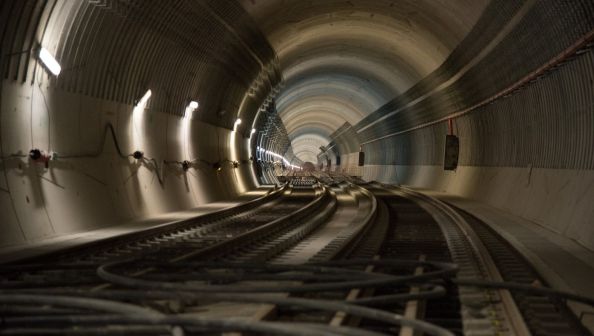PARIS public transport operator RATP has reported a 21% increase in passenger numbers in 2022 compared with the year before, reaching a total of 2.86 billion journeys as restrictions introduced during the Covid-19 pandemic were lifted and tourists returned to the French capital.
Also boosted by rising fuel prices, passenger traffic was up 32% on the Paris metro, 35% on the RER routes operated by RATP and 17% on its light rail network. Total passenger traffic in 2022 was still 14% down on pre-pandemic levels, compared with 29% below them in 2021.
The increase in passenger traffic saw RATP’s core business in the Île-de-France region contribute €119m to the €149m year-on-year increase in group income. Consolidated group income was €6.1bn in 2022, up 10% on 2021.
Income from RATP Dev subsidiaries operating outside Paris was up €420m year-on-year, with new operating contracts starting in Qatar and Egypt. These subsidiaries provided €1.6bn or 26% of consolidated group income in 2022.
However, RATP says that both its operating and financial performance were affected by the wider economy and particularly acute staffing issues.
The operating result (Ebit) was down at €193m from €327m in 2021, reflecting the impact of inflation on production costs, which increased by €96m at RATP’s core business. Absenteeism due to staff illness and recruitment difficulties resulted in a €36m increase in penalties for failing to meet contractual obligations and a worsening by €35m of the RATP health insurance scheme.
RATP says that these extra costs cancelled out the positive effects of the increase in traffic. The group net result was a loss of €26m compared with a positive result of €207m in 2021.
Investment made by RATP in its core network in 2022 reached a total of €2.21bn, down by 7% on the year before due to the completion of metro extension projects and delivery problems at rolling stock suppliers.
A total of €1.2bn was spent on rolling stock and infrastructure, including the new MF19 metro fleet, new RER trains and TW20 LRVs for Line T1. The RER MI2N and MI84 fleets underwent refurbishment while metro projects included converting Line 4 to driverless operation and upgrading Line 6, where refurbished MP89 trains are being introduced.
Metro and light rail extension projects received €850m, including metro lines 11, 12 and 14 and extending light rail route T1 to Val de Fontenay and T3B to Porte Dauphine.
RATP spent €157m on station refurbishment, accessibility improvements and upgrading passenger information systems. The RER Line A stations at Auber, Vincennes and Charles de Gaulle-Etoile were refurbished, as well as 11 metro stations including Place d’Italie and Saint-Michel Notre-Dame.
Turnover at engineering consultancy Systra, where RATP holds a 43.4% stake, grew by 18% to over €900m. Systra recorded new orders worth over €1bn, taking its order book to over €1.3bn.
“The contrasting results for 2022 show the extent of the headwinds facing the RATP group, in a difficult macroeconomic and social context,” says RATP president and CEO, Mr Jean Castex.
“My priority at the beginning of 2023 is to improve the transport services provided by RATP in the Île-de-France region to give our users the quality of service they have a right to expect.”
Castex said RATP is redoubling its efforts to attract and retain its employees to meet these challenges, adding that the company had launched “an unprecedented recruitment campaign that is already bearing fruit.”
For detailed data on metro and light rail projects around the world, subscribe to IRJ Pro.

